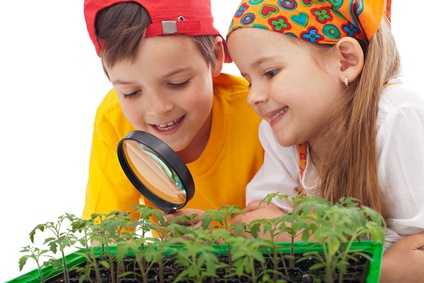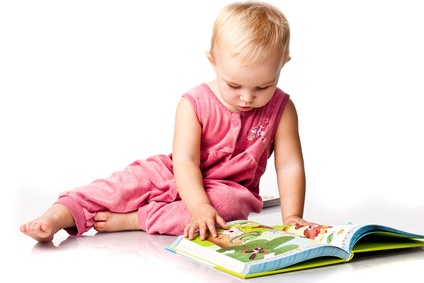Chapter 12 - EMOTIONAL INTELLIGENCE
< Return Chapter 12
Other strategies to help boost your child's Emotional Intelligence, Self-Esteem and IQ
12.21 - Have a pet
Not only do pets provide a warm and friendly source of comfort, but they serve as
important contributors to children’s physical, mental and emotional development.
Pets can boost self-esteem and confidence in everybody, not only children. Taking
care of an animal and being responsible for it fosters a sense of self-worth and
purpose. Just playing with your dog or petting your cat has shown to reduce stress
levels in adults and studies show that children who have pets in the family have
higher self-esteem than those who don’t. This is most likely due to the fact that the
furry friend has unconditional love for them and that there is always a friend to chat
to even when they are lonely. There is no better comfort when feeling afraid, sad or
lonely than curling up with your dog and telling him all about it. Furthermore, having
a pet is a fantastic opportunity to promote responsibility and, while you won’t be able
to dish out serious pet-care chores to your toddler; you will be able to demonstrate love and nurturing.

You can teach your little one the importance of feeding their pet, making sure there
is fresh water and offering lots of love and attention. This will increase their sense
and understanding of responsibility and foster greater self-esteem. In particular you
can teach your toddler the importance of being kind and gentle – values that are
important for self-esteem and confidence. Looking after a pet is also a great way to
involve boys in the art of nurturing where looking after an animal is not particularly
gender specific. By the age of 8 most girls will have played ‘house’ and practiced the
art of nurturing and caring for a baby doll whereas boys don’t engage in this sort of
play at all. In this sense, having the opportunity to care for an animal gives boys the
opportunity to develop the caring, nurturing side of their personality.
Having a pet certainly fosters physical development as it encourages outdoor play (particularly where dogs are concerned). Not only will your little one be running along with his puppy, but throwing a ball or a frisbee disc is another great game that facilitates physical development and coordination. On the other hand, handling a hamster or a gerbil in a gentle way also promotes motor coordination and development. In terms of promoting mental development, studies have shown that pets can assist with children who are struggling to read by simply offering a listening ear.
That’s right, children will find it easier to read aloud and practice this important skill when there is a non-judgmental ear around, and, who better to read to than the family pet? Having pet has also shown to facilitate the development of social skills by providing a common ground for kids to talk about. In fact research suggests that a child is more likely to approach another child that is playing with an animal. In this sense, having an animal not only offers your child a subject to talk about, but also facilitates meeting other children and socialization.
12.22 Raise a few vegetables
Children love anything that has to do with being outdoors – from digging in the dirt,
to hunting down insects – playing outside is a firm favorite. Gardening has shown to
be a great source for learning. Not only is gardening great for teaching numeracy and
literacy, but also for generating increased self-esteem, responsibility and resiliency.
Counting the potatoes that you harvest and writing the names of the plants onto
seed boards are great ways of promoting numeracy and literacy skills.

Getting involved in gardening teaches children about the mystery of nature. It is a
great learning experience to see how the seed sprouts into a plant and bears flowers
or fruit and veggies that you can eat. Teaching your toddler how to water the plants
and how to be responsible fosters a sense of being important and increases selfesteem.
See that plant grow and then being able to eat the potato or tomato
knowing that he grew it will increase his self-confidence. On the other hand,
occasionally having to deal with a plant that dies, or is eaten by worms also teaches
your child about the cycle of nature and teaches resiliency in dealing with loss. But
most importantly, when your child gets to spend time with you while being outside
and getting some fresh air he gets the greatest benefit of all.
12.23 Read fat books with complicated plots and big words
Reading a story together is a great way to bond with your children. When your baby
becomes mobile and hits the toddler stage and early childhood, he will be running
around and independent so catching him for a quick cuddle or some time with you
becomes less frequent. Sitting down at bed time to read a story together promotes
bonding and sharing of quality time. We all know that reading to your child fosters
emotional and mental development and the studies show reading to your child
increases their aptitude for learning in the future. Reading to your child also assists in
the development of language skills, both listening and expressive skills. Teaching
your child how to sit quietly while you read the story is an important listening skill to
learn. He will also learn, through witnessing the interactions of the characters in the
books, just how to express himself effectively. Reading books with intricate story
lines and complicated plots helps your child to develop logical thinking skills,
increasing his ability to grasp abstract concepts, recognize cause and effect, and
make use of good judgment.

When you choose a book that is longer than usual and may take many nights to
read, it fosters excitement about reading and anticipation of your time together when
you get to read more of the story. The complicated plot and the anticipation will also
encourage your child’s natural curiosity and imagination. These sorts of books are
usually geared toward slightly older children so you may find that the vocabulary is
slightly above the level of your five year old. As long as you encourage your little one
to ask you if they don’t understand something, then this sort of reading can actually
be beneficial to his developing vocabulary. Following a complicated plot also develops
his abstract reasoning and understanding.
12.24 Cook and bake together
All kids love good food and tasty treats and here is a particularly fun way to spend a
rainy afternoon. Cooking together is a great bonding activity that has a tasty
outcome and provides an opportunity for teaching as well. Giving your girl the
opportunity to cook with you allows her to feel as if she is part of something
important and bigger than herself. She will feel more responsible in general when you
entrust certain tasks to her, such as pouring the milk, or opening the packet. It
fosters her sense of responsibility and increases her self-confidence when she knows
mom trusts her abilities too. When she gets to present the cupcakes to dad and can
say she made it herself it will only serve to bolster her self-esteem. Not only this, but
it is also a great way to get your child talking to you about his day, experiences,
wishes and fears. When he is busy cooking his mind is relaxed and open and he is
more likely to share tidbits of information with you in this non-threatening way.

Cooking and baking together is also a great way to teach specific skills. You can ask
your little one to fetch 1 onion, 2 tomatoes and 3 slices of cheese. Your older child
will begin to see that ¼ cup is less than ½ a cup and that 1 teaspoon is the
equivalent to 5ml. Baking also demonstrates chemistry – the remarkable
transformation of flour, water and eggs into a delicious scone, or how marshmallows
can change color when grilled.
When you encourage your little one to cook with you, you will naturally encourage the tasting of new and different foods. You may even notice that he begins to eat more fruit and vegetables and you can cultivate a love for healthy foods too. In fact, you could also use this time to teach your child about different cultures and the different foods all over the world. You could have themed cooking days where you pick a country and bake or cook something from that country. You could get your child involved in a world atlas increasing his awareness of the world in general and the different countries and cultures that exist. Later, when the cooking is done, she can help you tidy the kitchen again and thereby fosters that important sense of responsibility. Feeling pride in her final product will increase her self-esteem.
12.25 - Plan your vacations and weekends as a family
Weekends and vacations are important family time. This is especially true if one
parent is often away with work obligations. Even when both parents are at home,
week days normally consist of busy routines and can often be quite stressful. As such
it is important, as much for you as for your little one, to have some ‘downtime’.
Travelling and leaving home takes our minds off the trivial routines of everyday life
and recharges our energy while allowing our kids the time to gain new knowledge
about the new places visited. As such planning day trips and family vacations is a
vital part in raising happy and intelligent children.

Planning fun outings on a weekend, or exciting family vacations together gives the
whole family something to look forward to and a great opportunity to relax and bond
together. When the day trip or family vacation is for the whole family, it is important
to hear about what everyone wants to do. It is no good dragging your wife and
daughters on a deep sea fishing trip when they are uninterested in fishing. While
they may learn a thing or two about fish and ocean life, it will probably not be an
enjoyable way to spend the day. So it is really important to take the needs and
desires of each family member into consideration when planning the outing.
Enlisting your child in planning the weekend gives them a voice and a sense of ownership over the outing or vacation. Listening to their desires and taking this into consideration when planning the trip also makes them feel valued and important. If you already have a vacation planned, it is also useful to ask your children to come up with ideas about what to do while you are in this place. In this way they will still feel as if they have some say about the trip or vacation.
12.26 Listen Well the Opinions of Children
The most valuable thing you can teach your child is that what he has to say and what he is feeling is important. Listening to what your child has to say from early on fosters open lines of communication during the difficult teenage years. So, if your little one has something to tell you, stop what you are doing and really listen to what he has to say. By dropping what you are busy with and giving him your undivided attention you will be communicating that his thoughts, feelings and opinions matter to you. Of course it isn’t always easy to simply drop everything when your little one tries to talk to you. This is especially true when you have a three year old who seems to want your undivided attention every waking minute of his life.
After all you have dinner to cook and a household to run. The important thing here is
to let him feel heard, so if you are busy and cannot listen at that moment, get down
to his eye level and tell him so. Simply telling your little one meaningfully that you
really are interested in what he has to say, but that you are a little caught up right
now and will give him all your attention in a minute or so is a whole lot better than
simply listening with half an ear and giving the standard “mm hm” response. This
way he will still feel important and also learns the art of turn taking. Then, when you
have a moment, be sure to give him your attention and listen to his story.

Fully listening to what your child is telling you give you an important opportunity to
help him understand his emotional world by giving him the names of what he is
feeling. So, in other words, you could respond to his story by saying “I understand
that you felt angry when we changed the television program without asking you”. In
this way you accept his feelings without any judgment and you validate his
experience while providing him with a name for the feeling – angry. It is really
important that you don’t try to distract your child from what he is feeling, or try to
negate his experience simply because you are uncomfortable with what he is saying.
This is so easy to do and we do it all the time.
When he comes to tell you how upset he is with his friend try not to say “you shouldn’t let that upset you”. Rather respond in an empathic way “yes, I can see how this has made you feel sad”. Again, you will be validating his experience and providing him with the language necessary to make sense of his emotions. Furthermore, you don’t need to feel like you always need to give advice or guidance. Simply listening to the story is validating enough. Sometimes all we want is to be heard and understood, and children feel the same.
Listening to your child means allowing them the space to talk freely so you may want to ask open ended questions such as “tell me more”, or “and then?” to encourage free flowing conversation. This shows your child that you really are interested in what he is telling you. At times, when it is appropriate, you could share some of your own experiences illustrating that you can relate and empathize. So you may want to say “yes, I also get angry when I can’t watch the program I was looking forward to”.
In fact, when you share some of your own feelings with your child (within reason and where appropriate) you allow him to gain confidence in expressing his own feelings. So, in sharing that you feel worried about the dog because he is sick, it may give him more confidence to express his feelings about the beloved pet. This communicates to him that it is ok to talk about this subject and that his feelings regarding the issue will be accepted.
12.27 Resist comparisons.
As we have mentioned before, no two children are ever alike and your child is a unique little being with his own strengths and attributes. As such making comparisons between your child and another – be it his sibling, cousin or even just a friend, sets up negative consequences for both sides. In fact, comparing your child to his sibling will only serve to set up sibling rivalry that is unhealthy within the family unit.
So when you make comments such as “why can’t you clean your room like your sister does”, or “why can’t you be more like Sally” you communicate an implied message that these people are better than your child and you only end up reminding him of his difficulties in a way that will promote jealousy and competitiveness.
This may make perfect sense and many parents strive hard to resist negative
comparisons between their child and another but may make positive statements such
as “you played much better than Sam today”. While this seems relatively harmless
and the intention is to bolster self-esteem, the comment is still potentially damaging.
When you make comments like these you set your child up as being the model for
others who are then expected to live up to those standards.

Making comparisons between your children comes naturally when you are trying to
distinguish between their strengths. In this sense, it is easy to refer to one child as
the creative child, while the other is the academic and, while you are not intending to
cause damage, you set up an implied comparison where one is better than the other.
It is important for parents to realize that each child has attributes and strengths that
make them unique.
Essentially, parents should avoid getting stuck on attributes that others think are important. If your baby hasn’t learnt to walk by 12 months it does not mean he is delayed. If your three year old is can’t count to 20 yet, it doesn’t mean that he won’t be an academic. These are societal ‘norms’ and make it difficult to see the unique abilities that your child does possess.
Comparisons with other children only allow you to see the deficits in your child’s abilities and seldom lead to any positive messages of acceptance. If you focus more on your child for the unique and special person that he is then you show him that you appreciate him and accept him for who he is in his own right – an important aspect of a healthy self-esteem.
12.28 Offer empathy and redirect inaccurate beliefs.
So even when you have been working hard at resisting the comparisons between
your little one and his brother, you might find him asking you why he can’t draw as
well as his sister – thereby making the comparison himself. If you find this
happening, respond in an empathic manner and redirect his attention to his unique
abilities. So for example you might say “Yes, your sister draws very well and you are
really good at throwing a ball”. By doing so you are acknowledging that both have
special abilities and neither is more desirable or better than the other. You will be
teaching your little one to value his strengths and accept that others may have
different strengths to him.

Avoid letting your child get into a negate mind set about his abilities. Self-doubt and
negative self-belief are detrimental to self-esteem and confidence. So if you find your
child feeling down and saying things like “I can’t read well, I’m a bad student” pay
attention and make every effort to undo this negative self-talk. Help him see his
strengths and limitations in a realistic way and with acceptance. You may respond
empathically by saying something like, “you are struggling with reading but you do
very well in other areas. You are a good student when you put so much effort into
your work. Let’s see what we can do to make reading easier”. This response
empathizes with and validates his difficulty with reading, showing that you accept
this limitation in him. It also illustrates that this limitation does not define him as a
student and that, at the end of the day, it is the effort that you put in that counts,
not always the end product.
This teaches your child that everyone has their own special strengths and that everyone struggles with their own limitations. It also teaches your child acceptance of these and that you don’t have to be brilliant to feel good about yourself. Learning this sort of self-acceptance is a key factor in raising a bright and confident child.
12.29 Provide encouragement.
The basic components of emotional intelligence (self-belief, self-esteem and confidence) are promoted through support and encouragement. This sort of encouragement communicated your acceptance of your child. It tells him that you see him and his effort and you believe in his ability. Support and encouragement means giving positive feedback about the progress, the effort and the journey and not just the achievement.
In fact it has been shown that praising the achievement sets up a standard that says “I’m only proud of you when you achieve”. In some cases children may shy away from trying, believing that they will fail and would rather avoid disappointing their parents than actually trying. In this sense it is so important to encourage the attempt and praise the effort, despite the outcome.
When you praise your child’s efforts you also communicate to them that the attempt
is what is important and your child will be more likely to try again in the future, even
when they weren’t successful the first time. In this sense, if you see that your son is
having difficulty with reading try not to constantly correct the pronunciation and
rather say something like “it is really great to see you trying so hard at this even
when you are struggling”. This fosters acceptance of the difficulty and promotes
continued effort and making it work. Your child will feel good about himself even if he
isn’t doing too well in the reading department.

So, there is a big difference between giving praise and being encouraging. On the
one hand giving praise means celebrating the outcome, the achievement, while
providing encouragement means rewarding the child regardless of the achievement.
Remember that rewarding the achievement may make your child feel that his worth
is dependent on how well he succeeds. Praising successes only can also result in an
increased pressure to perform, which is often hard to live up to. This is detrimental to
his self-esteem as when failure strikes, as it inevitably will, he will be left feeling
worthless or not good enough. He will have his limitations (as everybody does) and
he needs to know that he is worthy even when he doesn’t succeed. Encouragement
of the effort or the attempt, however, acknowledges his worth regardless of the
outcome and sends the message that the effort or the attempt is what is important.

12.30. Your baby knows when you're faking it!
After only 18 months old, children's brains process what they see and is able to distinguish the truth or falsity emotional expressions of parents or people around them. For example, when the mother smiles to hide a negative experience from the baby, it's really not a good idea; as they relate instinctive situations or events to the kind of excitement that they generate. The babies’ brains process what they see and can really capture people’s feeling around them.
A study was conducted in 2013 by Sabrina Chiarella and Diane Poulin-Dubois, researchers at Concordia University in Montreal; and published in Infancy as an official journal of the International Society on Infant Studies. It points out that babies should not be deceived because telling the truth may make even a pain, such as a hammered finger, to produce joy other than hurt.
The study was conducted in a laboratory involved 92 children between 15 and 18 months old that were placed in front of an actor playing different situations to express emotions coincide or not with the situations, in these tests, three different situation were set up as:
- In an action, the actor appeared sad when presented with a desired toy (no coherent emotion); - In another action, the actor expressed pain when he pretended his finger hurt (coherent emotion);
- In another action, the actor displayed joy when his finger hammered (no coherent emotion).
As results, babies 15 months as not yet able to differentiate the truth or falsity showed empathy for all the sad faces of the actors through the babies’ own facial expressions.
Babies 18 months as able to detect the unrelated (non-coherent emotion) between facial expressions and situations, did not spend much time looking at the actors’ faces; instead, they looked at their caregivers to seek for answers about what happened, in order to know if they could rely on the expression of the actor. In addition, the babies did not show empathy when the actors showed sadness or joy without justification; and this means the babies showed no emotion when they were deceived.
Based on the finding from the study, babies know when they are deceived; and trust and empathy from your babies could be lost if you try to deceive them or hide your feelings from them. Babies are really smart!!
(Source: http://www.concordia.ca/cunews/main/stories/2013/10/16/babies-know-whenyourefakingit.html )
Summary ● For most children, the ability to perceive, control and evaluate emotions (emotional intelligence - EQ) is more important than one’s intelligence (IQ) in attaining success in their lives and careers. In the real world, it’s not the more intelligent people that are the most successful or the most fulfilled in life ● Remember that childhood development is all about wiring the brain with the appropriate connections through experience. So the more opportunity you give your child to wire in empathic responses, the more these connections will be made. It stands to reason that you will then have an emotionally intelligent child who has healthy self-esteem and confidence. ● Self-esteem and confidence are essential in raising bright children. In fact self-esteem has been linked with higher IQ scores so it stands to reason that we need to focus on developing high self-esteem and confidence in our children if we want them to succeed in life. ● One of the core contributors to healthy emotional development and selfconfidence is the relationship between parent and child. The bond that is formed here forms the basis from which all learning takes place. Parents need to foster a secure attachment through unconditional love that communicates to their child that the world is a safe and predictable place where they are accepted and cared for. ● Factors such as being attentive, consistent, setting limits and making use of positive discipline are all aspects that contribute towards a secure attachment and promote positive self-esteem. ● Playing with your child from as early as the newborn phase is also an essential factor in bonding positively with your little one. Having meaningful conversations with your child and playing in age-appropriate ways helps form a secure attachment and teaches your child valuable developmental tasks. It is important to support taking risks and exploring the world as well as dealing positively with their mistakes when they arise. ● Essentially it is important to interact with your child, regardless of her age, in a way that communicates love, respect and acceptance. Feeling safe, accepted and cared for forms the building blocks for self-esteem and confidence. ● Avoid comparisons. You should focus more on your child for the unique and special person that he is and you must show him that you appreciate him and accept him for who he is in his own right – an important aspect of a healthy self-esteem. It is important for parents to realize that each child has attributes and strengths that make them unique. ● Sitting down at bed time to read a story together promotes bonding and sharing of quality time. We all know that reading to your child fosters emotional and mental development and the studies show reading to your child increases their aptitude for learning in the future ● The basic components of emotional intelligence (self-belief, self-esteem and confidence) are promoted through support and encouragement. Support and encouragement means giving positive feedback about the progress, the effort and the journey and not just the achievement |